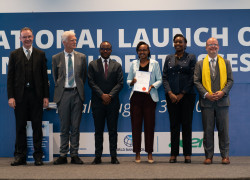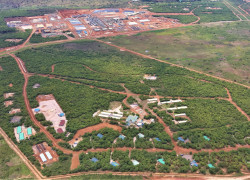LSFI Study Release: “Sustainable Finance in Luxembourg - A quantitative and qualitative overview”
The Luxembourg Sustainable Finance Initiative (LSFI), in collaboration with PwC Luxembourg, has conducted a study which assesses the sustainable funds segment in Luxembourg to understand the current state of the sector, key trends, and the main sustainable investment strategies used.
The study takes a deep dive into the sustainable finance industry, analysing the main ESG strategies implemented through sectoral analyses and asset classification breakdowns, among other dimensions. It also analyses the current impact assessment framework with the aim to complement existing studies and to identify gaps to determine actions for improvement.
Key findings of the study include:
- Discrepancy on ESG fund qualification - The ESG dimensions and data assessed in various studies tend to vary as they heavily rely on individual data providers, who typically have sole oversight on how their ESG data is collected and classified.
- ESG fund AuM represents more than half of Luxembourg UCITS assets - Despite the economic uncertainty and market turmoil during the first half of 2022, Luxembourg-domiciled ESG funds registered EUR 2.2tn in total assets at the end of June 2022[1]. This ESG fund AuM represents approximately 54.6% of the country’s overall UCITS fund assets, which surpassed EUR 4.0tn by the same period. PwC estimates the AuM of ESG UCITS funds domiciled in Luxembourg will surpass EUR 3.3tn by 2026.
- Majority of Luxembourg UCITS fund AuM invested into Article 8 and 9 funds - Over 53% of UCITS AuM in Luxembourg is invested in funds adhering to either Article 8 or Article 9 disclosure requirements in compliance with the Sustainable Finance Disclosure Regulation (SFDR). Article 8 is the predominant category, with 47% of UCITS assets under this classification, while Article 9 constitutes 6%.
- Asset allocation is well-diversified – Luxembourg-domiciled ESG UCITS funds are relatively well-diversified in terms of asset allocation. In terms of leading sectors, the Software and Services sector held the highest asset allocation sitting at 9.7%, followed by Pharmaceuticals at 9.1%, and finally Capital Goods at 8.4%.
- Applied ESG investment strategies - The study showed active management to be the predominant strategy for 92% of Luxembourg’s mutual fund. In the ESG segment, three core strategies emerge from the study:
- ESG Exclusion Strategy – ESG Exclusion funds, i.e., funds that apply one or more exclusion criteria were the most predominant fund type in Luxembourg accounting for 54.8% of the ESG UCITs. Out of these funds, 27% apply up to 2 exclusions while 21% apply up to 3 exclusions – mainly from the weapons, tobacco and fossil energy sectors.
- ESG Screening Strategy - ESG Screening funds, i.e., funds which only apply ESG factors into their overall screening process was the second most applied strategy, with 31% of fund assets.
- ESG Involvement Strategy - ESG Involvement funds i.e., funds that cover Best-In-Class, Positive Tilt, Thematic, Microfinance, Sustainable Development Goals or Sustainable Bonds within their ESG strategy was the least applied, accounting for 18% of funds in the research sample and 14% of ESG fund assets.
- Assessing impact - A lack of standardisation among ESG data providers, as well as a lack of generally accepted, standardised and utilised impact measures makes it particularly difficult to assess the impact of sustainable finance investments on the real economy at this stage.
“The transition towards sustainability is ongoing. Being in a transition period and considering the rapid development of sustainable finance, the ability to measure the progress made is of utmost importance. With this study, we wanted to complement the extensive and hard work of financial players over the last years in sustainable finance and further dive into it. We aim to provide a baseline for the financial industry, bring transparency and clarity, and identify strengths and gaps in order to help find improvement actions and appropriate solutions for the advancement of sustainable finance.” said Nicoletta Centofanti, LSFI Interim General Manager.
Access the full study here.
[1] A 14.2% drop in AuM from the end of 2021.
Communiqués liés
RSA launches technology and management liability insurance s...
RSA Luxembourg, part of Intact Insurance Specialty Solutions, today announces th...
Lancement d'une nouvelle connexion intermodale entre Bettemb...
CFL multimodal a le plaisir d'annoncer le lancement de sa nouvelle connexion i...
Experts from LUNEX award first micro-credentials in Rwanda o...
The Rwanda Ministry of Education (MINEDUC) formally inaugurated Syllabi, a publi...
ERG Notes that ENRC Secures Landmark Victory as Court of App...
Eurasian Resources Group (ERG), a leading diversified natural resources group he...
LetzToken et La Vie est Belle annoncent leur partenariat ouv...
«?LetzToken?», plateforme de tokenisation pionnière basée à Luxembourg, et ...
ERG announces a Pre-Export Finance Facility Agreement based ...
Eurasian Resources Group (“ERG”, “The Group”), a leading diversified nat...
Il n'y a aucun résultat pour votre recherche







